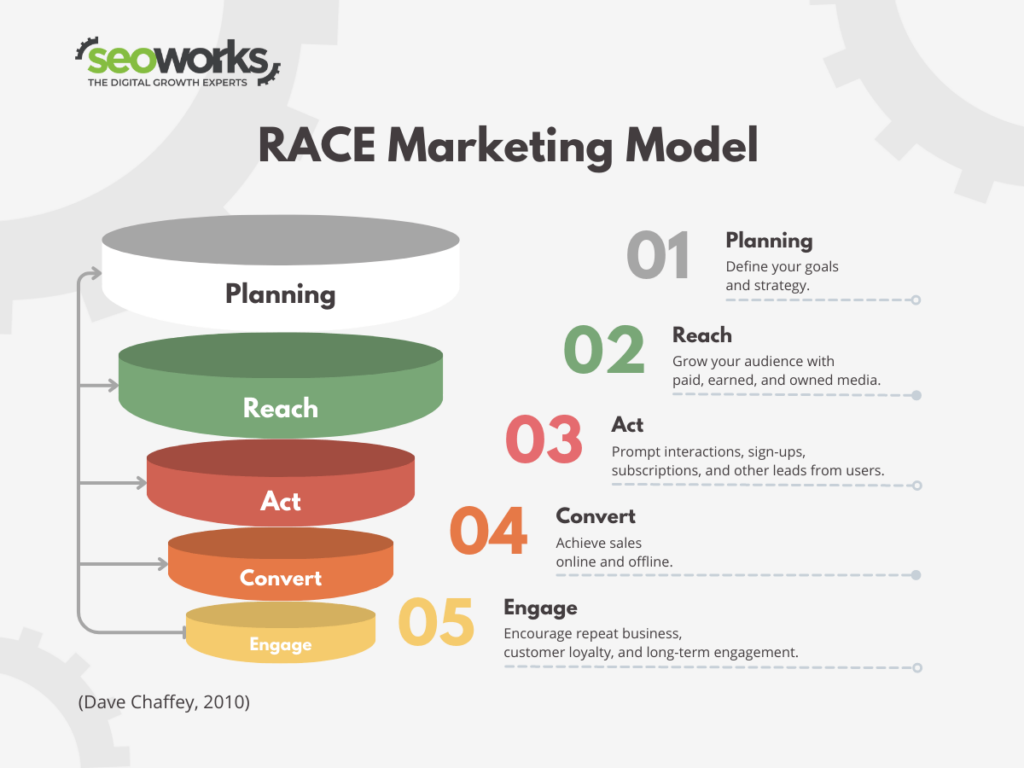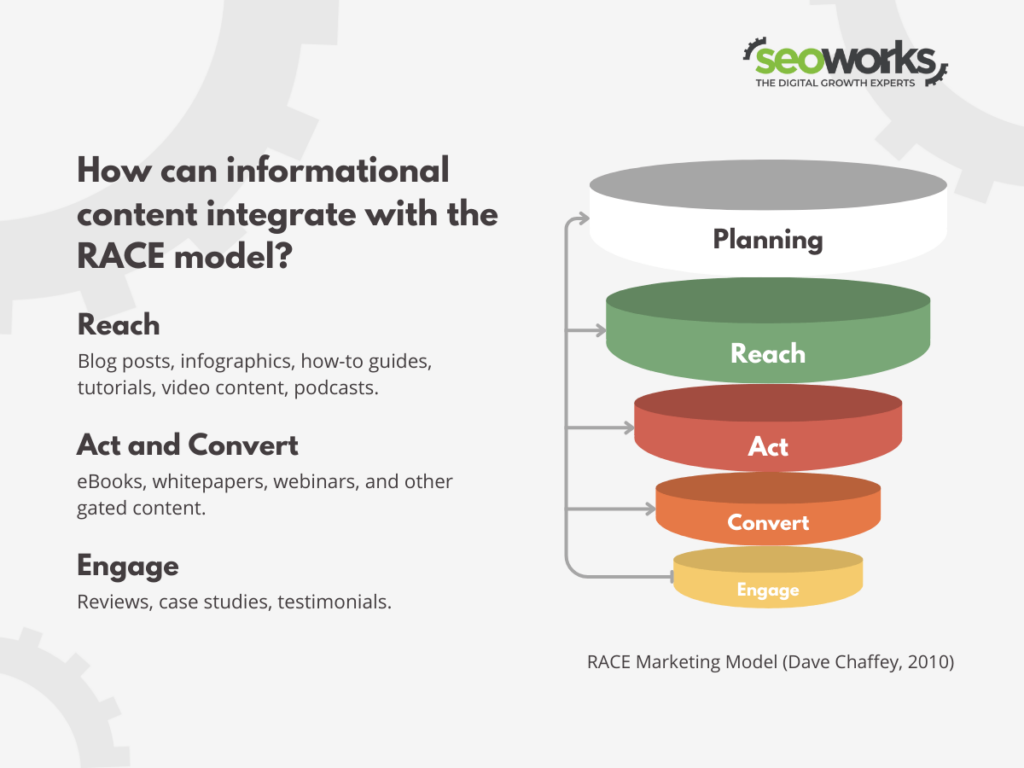
In today’s fast-paced digital marketing world, a common oversight many businesses make is underestimating the power of informational content in their online strategy.
While the primary objective of most websites is to sell a product or service, focusing solely on optimized product landing pages may not always be the best approach. This strategy tends to overlook the importance of informational content, which plays a crucial role in the consumer’s decision-making process.
What is Informational Content?
In digital marketing, informational content refers to materials created to inform, educate, and engage consumers in a specific sector or niche. This content aims to provide valuable insights, address user problems, and answer questions, thereby playing a pivotal role in content marketing.
Informational content encompasses a variety of formats, including in-depth blog posts, infographics, and videos. The goal is to create content that captures the attention of your target audience while addressing their questions and concerns.
Remember that informational content is distinct from promotional content, as its primary goal is to offer solutions to user problems and answer their questions, rather than directly advertise a brand or product. This is key! You are trying to add value to a user’s experience, rather than sell to them.
Informational vs Commercial Content
Commercial content, including “best of” lists, comparison posts, and reviews, is essential for optimizing conversion rates and overall website performance. However, focusing exclusively on this type of content will limit the reach and effectiveness of your digital strategy.
This is because the journey of an online consumer usually starts with seeking information. Before adding items to their cart or filling out an inquiry form, most consumers look for helpful insights and solutions. Informational content is key to guiding potential customers through this part of their journey and capturing traffic.
Guiding customers through this segment of their journey and attracting traffic to the website from the top of the consideration phase is where informational content proves its value. If you aren’t invested in creating it, you are missing out!
Informational Content and SEO
A study by The Pennsylvania State University in 2007 found that over 80% of web searches were informational in nature. Although this percentage might have decreased due to the rise of e-commerce, overlooking informational content could mean missing out on substantial traffic. By diversifying the types of keywords targeted, your website’s visibility can significantly increase.
A Model to Develop Informational Content Strategy
The RACE marketing model is a framework designed to guide businesses through creating comprehensive digital marketing plans. This model helps visualize how an organization should build brand awareness, engage with potential customers, convert audiences into sales, and maintain long-term customer engagement.

Incorporating informational content into the RACE model allows businesses to guide their target audience through the funnel more effectively. Developing a content marketing strategy using this model will help build informational content into your flow. A series of well-researched and edited blog posts that address the specific concerns of the target audience can engage new customers and lead them towards making a purchase.
Consider an e-commerce site focused on sports equipment aiming to increase sales of football gear. A blog post titled “10 Tips for Playing Football in Winter Conditions” could address common challenges while subtly promoting the site’s products. This approach not only provides solutions but also naturally guides readers towards making informed purchases.

The SEO Benefits of Informational Content
Informational content not only strengthens your brand, but also brings numerous SEO advantages. By posting regularly with well-researched content that addresses your audience’s needs you will be able to:
- Establish Authority and Expertise
Crafting authoritative informational content is an excellent way to position your website as a leader in your industry. This alignment with Google’s E-E-A-T guidelines boosts your chances of ranking for related keywords. - Target Long-tail Keywords
Focusing on specific, less competitive long-tail keywords can surprisingly drive a significant amount of organic traffic. Advancements in natural language processing and voice search technologies make these keywords even more valuable. - Boost Internal Linking
Informational content encourages the use of internal links, which improve site navigation and search engine understanding of your content. These links distribute link equity throughout your site, enhancing overall content ranking. - Help Link Acquisition
High-quality informational content often attracts external links, strengthening your website’s link building strategy. - Drive More Consistent Traffic
SEO strategies often leverage evergreen content to generate a steady stream of organic traffic. Evergreen content remains relevant over time, rather than being temporarily topical. If you can find informational content that is evergreen, you will help drive regular traffic to your site.
How to Write Effective Informational Content
Creating compelling informational content requires understanding your audience’s needs and interests. Here are steps to develop impactful content:
- Identify Your Audience’s Pain Points
Understand the challenges and questions your target audience faces. Use tools like social media listening and keyword research to gather insights. You could also survey your existing customers, or gain insights from speaking to your sales team. - Choose the Right Format
Depending on your findings, decide whether a blog post, video, infographic, or another format is best suited to address your audience’s needs. Ensure that your content is informative, engaging, and offers real value to the reader. Avoid overly promotional language and focus on providing solutions. - Optimize for Search Engines
Use relevant keywords naturally throughout your content, based on your keyword research. Ensure that your content is structured for readability and engagement, with clear headings, short paragraphs, and bullet points where appropriate. - Promote Your Content
Share your content across your platforms, including social media, email newsletters, and other relevant channels. Engage with your audience by responding to comments and feedback. - Measure Your Content
To gauge the effectiveness of your informational content, track metrics like website traffic, engagement rates, time on page, and conversion rates. Use these insights to refine and improve your content strategy continuously.
Final Thoughts
Informational content should be a vital component of any comprehensive digital marketing and SEO strategy. By providing value to your audience and establishing your brand as an authority, you can significantly enhance your online presence and achieve your marketing objectives.
However, creating high-quality informational content requires time, effort, and expertise. If you are short on time, our team of SEO professionals have the knowledge and skills to help. Get in touch for effective content strategies tailored to your business needs.




